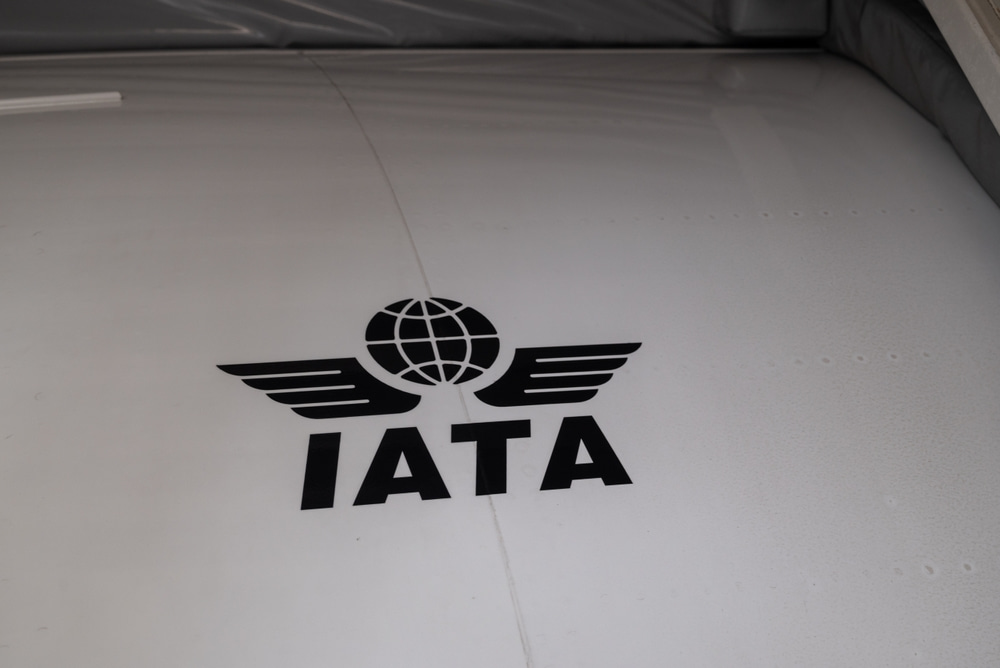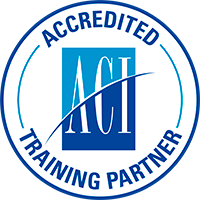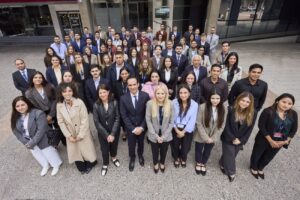
What is IATA: Meaning, Functions, and Relevance in Aviation
News
The International Air Transport Association (IATA) is one of the most influential organizations in the world of aviation and logistics. Its role in standardizing, securing, and increasing the efficiency of air transport is fundamental to the development of international trade and global airline cooperation. In this article, we will delve into what IATA is, its history, objectives, and functions, as well as its importance in the logistics industry and its presence in Spain. We will also answer some of the most frequently asked questions about IATA, providing updated and valuable information for everyone interested in the sector.
Índice
Definition of IATA
What is IATA and What Do Its Acronyms Stand For?
IATA, or the International Air Transport Association (IATA – Official Website), is a trade organization that brings together most of the world’s airlines. Founded in 1945, IATA was created with the goal of promoting cooperation among airlines, as well as facilitating the development of regulations and procedures that ensure the safety, efficiency, and sustainability of air transport. For historical context, you can also check the Wikipedia article: International Air Transport Association.
A Brief History and Its Foundation in 1945
IATA’s history dates back to the post-war period, when there was an imperative need to rebuild global air transport networks. In 1945, representatives from 57 airlines across various countries met to establish an organization that could regulate and standardize air operations on a global scale. Among its initial objectives were:
- Establishing common tariffs and policies: To avoid unfair competition and ensure greater price stability.
- Fostering technical cooperation: Through the exchange of information and the establishment of safety standards.
- Facilitating the growth of international trade: By creating unified procedures to expedite the transport of passengers and cargo.
Over time, IATA has expanded its scope and now includes more than 290 member airlines, representing approximately 82% of the world’s air traffic.
Current Membership and Global Reach
Today, IATA not only coordinates and unifies standards in commercial aviation but also serves as a collaboration platform among governments, regulators, and industry companies. Its global reach allows it to influence policy decisions and the implementation of regulations that affect the entire industry, while also promoting the development of new technologies and practices that enhance the safety and efficiency of air transport.
Objectives and Functions of IATA
IATA has a range of objectives and functions that position it as a cornerstone in the aviation and logistics industry. Among its primary tasks are:
Promotion of Airline Cooperation
One of IATA’s key pillars is fostering cooperation among airlines. Through forums, meetings, and committees, the organization facilitates the exchange of information and the coordination of efforts to solve common challenges. This collaboration enables airlines to:
- Share best practices: Leading to increased safety and operational efficiency.
- Optimize routes and connections: Enhancing passenger experience and global connectivity.
- Negotiate common tariffs and policies: Benefiting both airlines and consumers.
Establishment of Safety and Efficiency Standards
Safety is an indisputable priority in aviation. IATA plays a crucial role in developing and implementing international standards that ensure:
- Uniform flight procedures: Guaranteeing that all operations adhere to strict safety standards.
- Minimized operational risks: Through continuous training and certification of procedures.
- Up-to-date airport infrastructure: By incorporating modern technologies and emergency protocols.
These standards not only improve safety but also contribute to operational efficiency, allowing airlines to reduce costs and optimize resources.
Development of Environmental Regulations
With increasing environmental concerns, IATA has incorporated sustainability regulations and programs into its agenda. The organization works on initiatives aimed at:
- Reducing carbon emissions: By promoting more efficient flight practices and the use of alternative fuels.
- Fostering technological innovation: In aircraft design and air traffic management.
- Encouraging corporate social responsibility: Incentivizing airlines to adopt measures that minimize their environmental impact.
These actions are vital to ensuring sustainable growth in air transport and meeting global environmental protection goals.
The Importance of IATA in the Logistics Industry
IATA’s influence extends beyond passenger transport. In the logistics field, the organization plays a crucial role in facilitating international trade and regulating the transport of cargo.
Role in Facilitating International Trade
The rise of globalization and the growth of e-commerce have significantly increased the demand for fast and secure logistics solutions. Through standardizing processes and implementing regulations, IATA helps to:
- Expedite cargo transport: By establishing uniform procedures that enable efficient cross-border cargo flows.
- Ensure transport safety: Guaranteeing that sensitive or high-value products reach their destination without incident.
- Facilitate cross-border trade: By eliminating barriers and simplifying the documentation required for international shipments.
Influence on the Regulation of Dangerous Goods Transport
Air transport of dangerous goods requires special attention due to the associated risks. IATA has developed specific standards and guidelines that regulate:
- Packaging and handling of hazardous materials: To prevent accidents and ensure the safety of both the cargo and personnel involved.
- Training for logistics operators: Ensuring adherence to international protocols at every stage of transport.
- Supervision and control of operations: Working closely with national and international authorities to implement safety measures.
Benefits for Freight Forwarders and Logistics Operators
For freight forwarders and logistics operators, IATA offers tools and resources that simplify the management of international shipments. Some of the benefits include:
- Tracking and traceability systems: Allowing real-time monitoring of cargo movement.
- Standardized safety protocols: Reducing the risk of incidents during transport.
- Access to a global network of contacts: Facilitating collaboration and information exchange among various industry players.
IATA in Spain
Spain, one of the countries with the highest activity in the aviation sector, boasts a strong IATA presence. The organization works closely with airlines, authorities, and local entities to promote industry development.
IATA’s Presence and Activities in Spain
In Spain, IATA is actively represented through various initiatives aimed at:
- Training and education: The organization offers programs and certifications to enhance the quality and safety of air transport. You can learn more about these programs in the IATA Training Section.
- Collaboration with national airlines: Through joint projects designed to optimize operations and improve the efficiency of flight and route management.
- Participation in forums and conferences: Where current aviation topics are discussed and best practices are shared.
Collaboration with Spanish Airlines and Authorities
The relationship between IATA and Spanish authorities is fundamental for developing policies and regulations tailored to local needs. Some areas of collaboration include:
- Operational safety: Working together to implement measures that ensure the integrity of air operations.
- Technological innovation: Promoting the use of advanced systems for air traffic management and route optimization.
- Sustainability: Developing environmental initiatives that help reduce the impact of air transport on the surroundings.
This synergy not only strengthens the sector’s competitiveness but also positions Spain as a benchmark in the application of international standards.
Frequently Asked Questions about IATA
Below are answers to some of the most common questions about IATA:
What is IATA and What Is It For?
IATA is an international association that brings together airlines from around the world to promote cooperation, standardize processes, and enhance aviation safety. It sets the rules and procedures that facilitate the transport of passengers and cargo, ensuring efficiency and sustainability in the sector.
What Is IATA’s Mission?
IATA’s main mission is to facilitate collaboration among airlines and other industry stakeholders to achieve a safer, more efficient, and environmentally responsible aviation system. This is accomplished through the implementation of international standards, the promotion of best practices, and the development of training and certification programs.
How Do You Apply for IATA Accreditation?
The accreditation process varies depending on the service required. Generally, interested parties must meet specific requirements and undergo an evaluation process that includes a review of their operational and financial procedures. It is recommended to consult IATA’s official website or contact their local representatives for detailed information on the process.
What Is the Difference Between IATA and ICAO?
There are key differences between the two organizations:
- IATA (International Air Transport Association): Brings together commercial airlines and focuses on standardizing processes, ensuring operational safety, and promoting efficiency in air transport.
- ICAO (International Civil Aviation Organization): A United Nations agency that sets standards and recommendations for civil aviation worldwide, with a broader focus on global aviation regulation and safety. Learn more about ICAO on their official site.
Who Finances IATA?
IATA is primarily financed through membership fees from airlines and revenue generated by its services, such as training programs, consulting, and the sale of publications and licenses for the use of its standards.
How Much Does an IATA License Cost in Spain?
The cost of an IATA license in Spain can vary depending on the type of accreditation or certification requested. Fees are determined based on the service and the extent of the required training or evaluation. For precise information, it is advisable to contact IATA offices in Spain or visit the relevant section on their official website.
What Is an IATA Agent?
An IATA agent is a professional or organization accredited by IATA to manage and market air transport services for both passengers and cargo. These agents possess in-depth knowledge of IATA’s established regulations and procedures, enabling them to offer safe and efficient services.
Why Was IATA Formed?
IATA was created in response to the need to unify and regulate air transport after World War II. Its formation enabled:
- Establishing common standards: Facilitating cooperation among airlines.
- Improving operational safety: Through the implementation of uniform protocols.
- Boosting international trade: By creating a regulatory framework that simplified the transport of passengers and cargo.
How Do You Become a Member of IATA?
To become a member of IATA, airlines and agencies must meet certain requirements and undergo an evaluation process to ensure compliance with international safety, efficiency, and quality standards. This process includes:
- Review of financial and operational documentation.
- Compliance with safety regulations.
- Adoption of the standards established by the organization.
How Do You Obtain an IATA Certificate?
An IATA certificate is awarded upon completion of approved training courses and programs. These certificates validate the knowledge and ability to manage air transport operations in accordance with international standards. Training may include both theoretical and practical modules, and upon completion, a globally recognized certificate is issued. You can find more information about the courses in the IATA Training Section.
How Long Is an IATA Certificate Valid?
The validity of an IATA certificate varies according to the specific course or program. In general, many certificates are valid for two to three years, after which refresher or update courses are recommended to stay current with the latest regulations and technological advances.
Conclusion
IATA stands as an essential entity for ensuring the safe and efficient operation of global air transport. Since its foundation in 1945, it has been a pioneer in standardizing processes, implementing safety regulations, and fostering cooperation among airlines and international authorities. Its influence extends beyond commercial aviation, positively impacting the logistics industry by facilitating international trade and regulating cargo transport—even for hazardous materials.
In Spain, IATA continues to work closely with airlines and regulatory bodies, contributing to the development and modernization of the sector. The implementation of training and certification programs has enhanced the professionalism of those involved, positioning Spain as a benchmark for the application of international standards.
Are you interested in being part of the change in the aviation industry? Explore the training programs offered by ITAérea. Stay updated, acquire top-level knowledge, and join the network of professionals making a difference in the sector. Visit our website and start your journey toward professional success today!
In summary, IATA is a key player in shaping and evolving global air transport, ensuring the safety, efficiency, and sustainability of operations in an ever-growing industry. From its early days to the present, its work has allowed international trade to develop in an orderly and safe manner—benefiting airlines, passengers, and logistics operators alike. Understanding what IATA is and its impact on the industry is essential for any professional in the sector. The implementation of international standards, the promotion of cooperation, and continuous training have kept IATA at the forefront in a dynamic, ever-changing environment. Stay informed and updated on its regulations and training programs to guarantee success in such a competitive market.
Whether you are interested in commercial aviation, cargo transport, or international logistics, IATA’s influence is undeniable—and its impact is reflected in every flight, shipment, and new technological initiative that drives the sector forward. Take this opportunity to learn and grow professionally through the specialized training offered by ITAérea, and become part of a global network committed to excellence in aviation.
CONTACT info@itaerea.com +34 968 966 885 TEACHERS TRAINING





